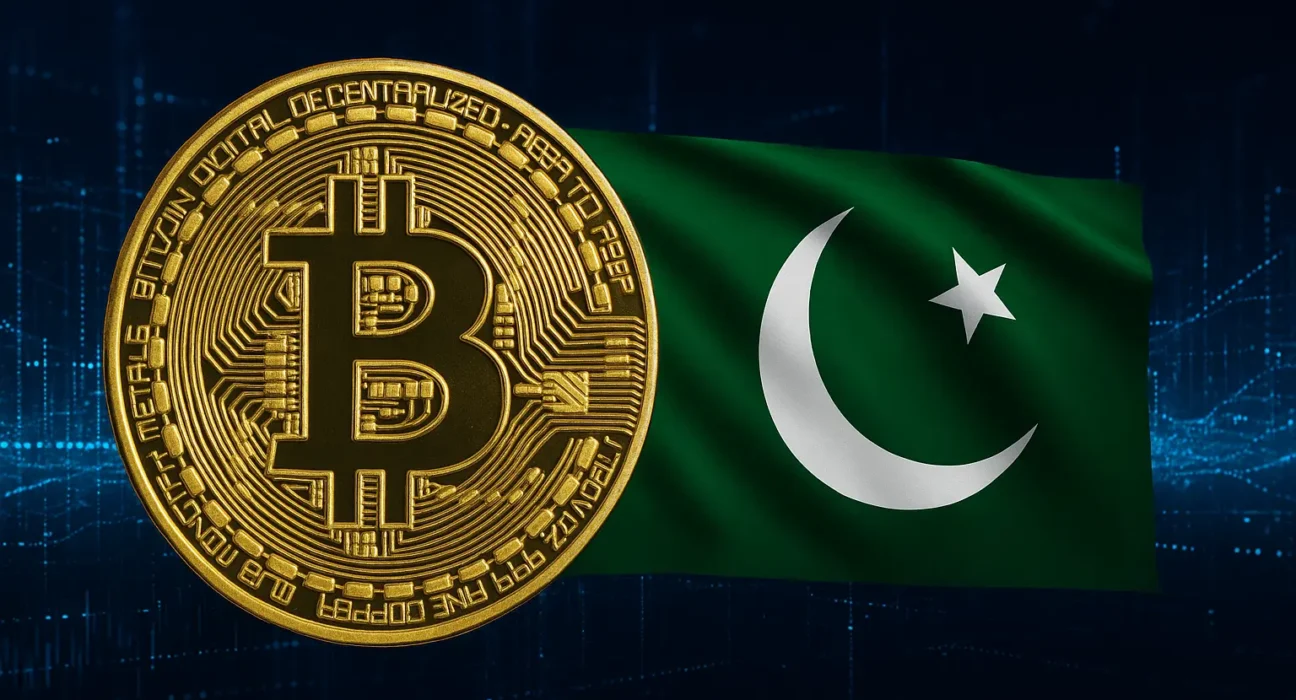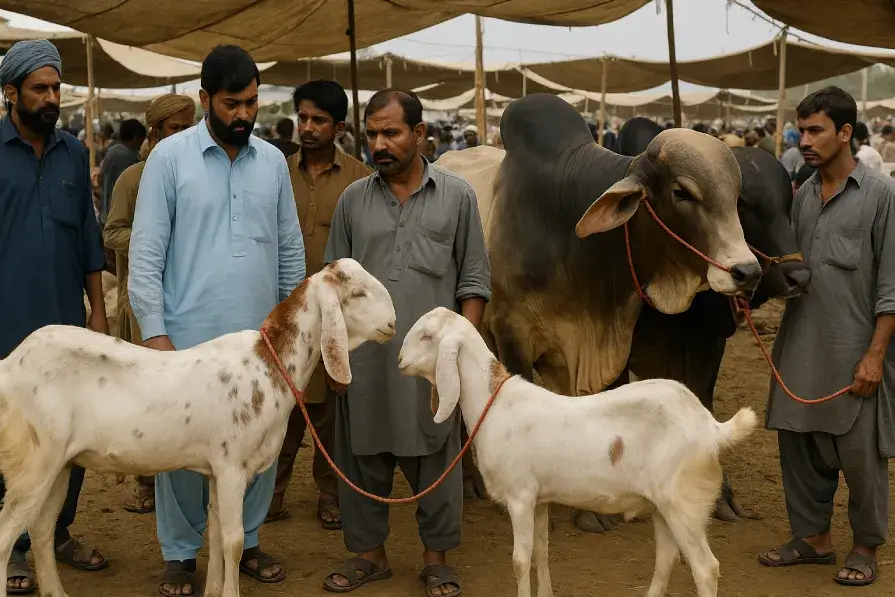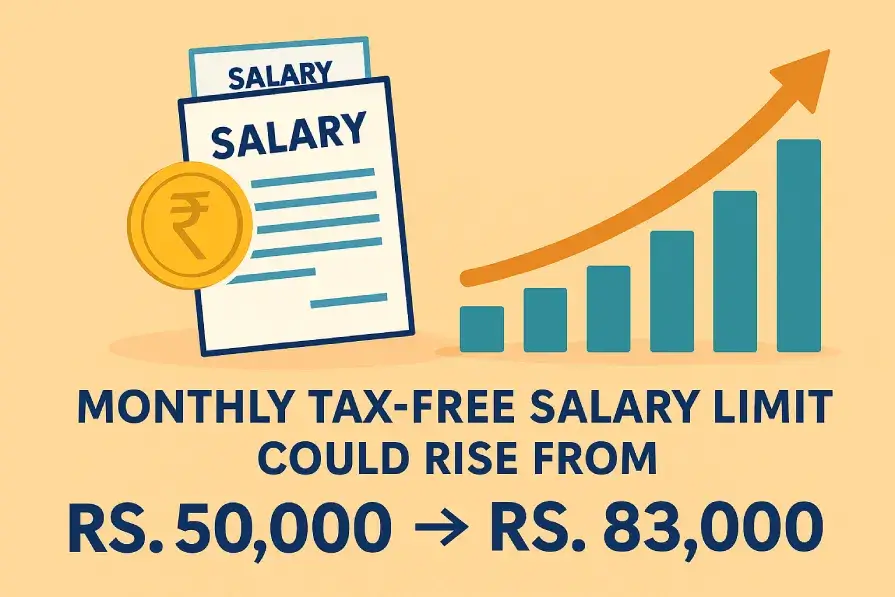Pakistan’s Crypto Leap: First Government-Backed Bitcoin Reserve Debuts

Pakistan is now a part of the digital economy, thanks to the unveiling of its own Bitcoin reserve. The announcement that Pakistan has embraced crypto was made by Bilal Bin Saqib, who serves as the Special Assistant to the Prime Minister on Blockchain and Crypto, at the Bitcoin Vegas 2025 event. It demonstrates Pakistan’s decision to use blockchain and cryptocurrency in its economy.
A National Bitcoin Wallet and Mining Infrastructure
Besides setting up the reserve, the government introduced a national Bitcoin wallet for the safekeeping of digital assets. By using blockchain technology, the wallet will ensure both clarity and safety for the country’s digital currency assets.
Additionally, Pakistan announced that it would set aside 2,000 megawatts of extra electricity for Bitcoin mining and AI data centers. The purpose of this initiative is to maximize unused energy resources and contribute to the development of a more diverse economy. Investing in crypto mining and AI helps Pakistan stay ahead of new global tech advances and creates jobs in rapidly growing sectors of the economy.
Learn More: Sindh Bans Ajrak and Sindhi Topi at Public Events
Financial Inclusion for 100 Million Unbanked Citizens
The primary objective of this initiative is to close the financial inclusion gap. Currently, over 100 million Pakistanis lack access to traditional banking services. Blockchain and cryptocurrencies are tools that governments use to give more people a chance to participate in the formal economy.
The national Bitcoin wallet and the upcoming PDAA will be the main focuses of this plan. The PDAA will oversee digital asset transactions, ensuring that all parties involved comply with regulations, maintain security, and act in an ethical manner. It will guide and help both new startups and financial institutions as they get involved with crypto.
Strategic Benefits of State-Backed Cryptocurrency Reserves
Pakistan may reap several benefits from implementing this change.
- Economic Diversification: Instead of relying solely on farming and textiles, the industry is leveraging fintech to drive growth.
- Foreign Investment: Attracting global investors who are interested in crypto and blockchain progress.
- Transparency: Thanks to blockchain technology, businesses have a secure and transparent ledger that reduces the likelihood of fraud and enhances accountability.
- Energy Utilization: Selling cryptocurrency to earn an income by putting unused electricity to work in mining.
Global Reactions and Industry Outlook
The news has excited people worldwide, especially since analysts have praised Pakistan for its forward-thinking approach. Although many developing countries are cautious about using crypto, Pakistan has decided to be the first. This decision could influence future moves by other developing countries in South Asia and beyond.
Bilal Bin Saqib explained, “This isn’t just about crypto; it’s about making sure Pakistan has a strong presence in the global digital economy in the future.”
Learn More: Saudi Arabia Bans Children from Hajj 2025 to Improve Safety and Crowd Control
Challenges and Risk Management
Still, some issues need to be dealt with:
- Volatility: Bitcoin and many cryptocurrencies tend to experience significant changes in their prices.
- Cybersecurity: The national Bitcoin wallet must be secure from hackers.
- Regulatory Hurdles: Building solid and reliable regulations will be difficult but needed.
To address these risks, Pakistan is set to collaborate with global cybersecurity firms and blockchain experts to develop a robust and secure system. The PDAA will incorporate international best practices into its regulatory framework.
Public Response and Education
People’s opinions about what happened have been varied. While those skilled in technology and fintech are pleased with the announcement, others are hesitant because they are unfamiliar with it. Therefore, the government plans to launch a nationwide information campaign.
Educational initiatives will be an integral part of these efforts.
- Workshops and webinars: Giving information on how Bitcoin and blockchain technology operate.
- University partnerships: Blockchain education should be added to academic programs.
- Community engagement: Organizing town halls and literacy sessions in rural areas for people.
Future Roadmap and Vision
Pakistan’s holdings of Bitcoin are only a first step. What comes next are:
- Tokenization of National Assets: Looking into the idea of digital tokens from the government for public assets.
- Blockchain in Governance: Blockchain technology is being applied to manage public records and provide services.
- Cross-Border Payments: Relying on crypto to make foreign transactions both faster and less expensive.
Digital technology is now being integrated into Pakistan’s economic strategy to help the country remain strong and grow over time.
Conclusion: A Historic Leap Toward Financial Innovation
Pakistan is now poised to embark on digital transformation by launching its first state-backed Bitcoin reserve. These changes are expected to create new economic opportunities, expand financial services, and establish the country as a leading player in fintech across the region.
With the rise of the digital economy worldwide, Pakistan’s early efforts offer a good example for other similar countries. By investing in blockchain technology, promoting financial inclusion, and driving innovation, Pakistan is leading the world in economic reforms this century.









